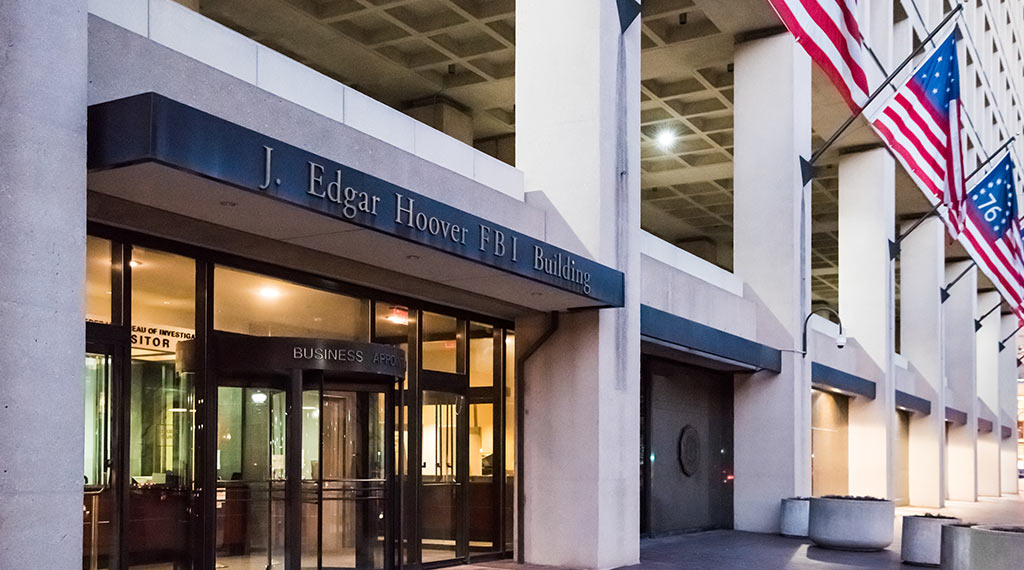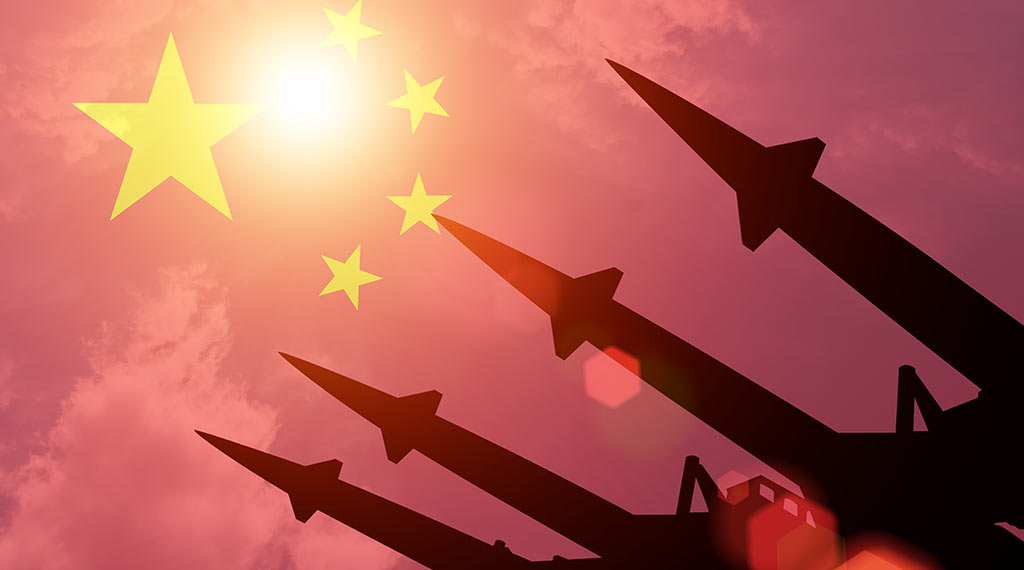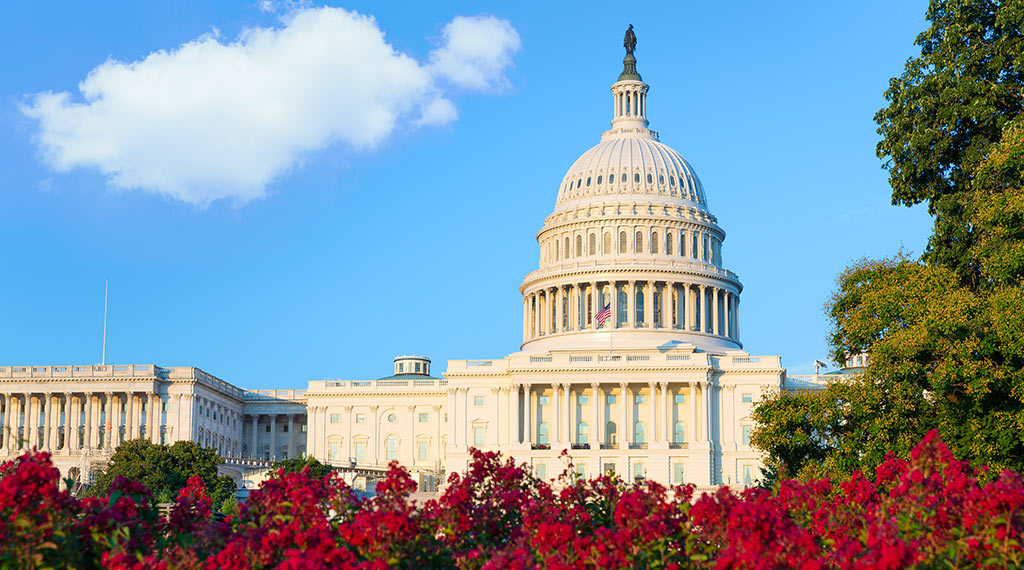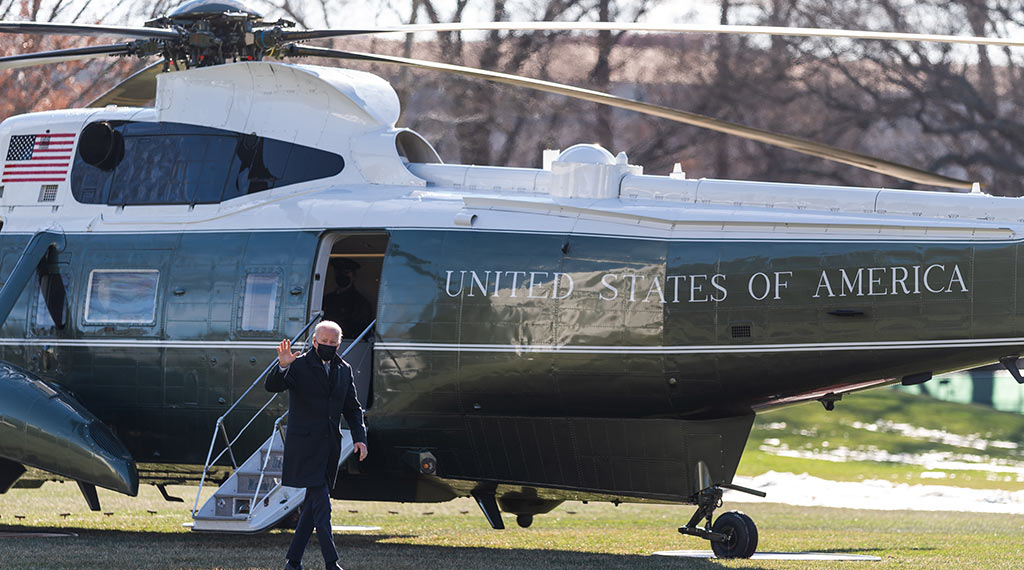Top Center for Security Policy articles of 2022

Below is a list of the most-read articles from the Center for Security Policy in 2022. This list features analysis from the Center’s top staff and Senior Fellows, and includes topics ranging from the degradation of the FBI to the China threat.
This is just a preview of the Center’s yearly work, to receive the latest CSP content every day, SIGN UP for the CSP Daily Brief. To read the full article, click on each individual title.

The once-venerated Federal Bureau of Investigation (FBI), which prided itself on being a field-driven law enforcement agency, has increasingly become centralized political police.
A whistleblower recently warned the House Judiciary Committee that the FBI’s powerful Washington Field Office (WFO) was directing agents in field offices where alleged J6 participants resided to open cases, only to have the actual investigation conducted inside the beltway by the WFO.
China’s new superweapon exploits US blind spot

China has shocked the U.S. intelligence community and the world by the surprise test of an awesome new superweapon in August. Demetri Sevastopulo and Katherine Hille broke the story in the Financial Times on Saturday, October 16, in a report confirmed by five defense officials.
China used a Long March-2C Space Launch Vehicle (SLV) to send a Hypersonic Glide Vehicle (HGV) into low-earth orbit, which circled the planet before descending from space to simulate an attack on a terrestrial target.
The China threat is nonpartisan

The movement by state governors and legislators from South Dakota to New York to ban the TikTok app from state phones, and the bipartisan effort to do the same by Sen. Marco Rubio (R-Fla.) and Reps. Mike Gallagher (R-Wis.) and Raja Krishnamoorthi (D-Ill.), as well as the National Development Strategy and Coordination Act bill introduced by Rubio and Rep. Ro Khanna (D-Calif.), shows that the China threat and the U.S. response should be a nonpartisan issue.
Food security is a national security issue
An uptick in fires at food processing facilities has sparked concerns about the safety of America’s food supply.
Diseases have disrupted and severely damaged food production. The Covid pandemic closed meat processing facilities, forcing millions of healthy pigs to be euthanized in 2020. An insect-borne bacteria from China threatens the nation’s entire citrus production.
Man-made policies are causing painful food shortages worldwide. Last year, China hoarded half the world’s grain, driving up prices.
Another White House blunder on Ukraine

Jen Psaki, the White House spokesperson, said on Thursday, March 3rd, that the US is providing intelligence to Ukraine to help them target Russian troops and military equipment. This revelation demonstrates just how dangerous the White House has become, inviting Russian retaliation for something that, if we did it, we should be doing secretly.
There is a difference between supplying weapons to a friendly country and directly helping that country in a war to target the enemy. That makes you a party to the hostilities.
Targeting tens of millions of Americans who support mainstream policies while mainstreaming the views of dangerous street revolutionaries is only going to dangerously fragment our politics.
Joe Biden’s recent declaration that “MAGA Republicans” are motivated by an ideology of “semi-fascism” may come off as merely the sort of off-hand slander Biden is sometimes known to utter.
But while assailing a random crowd member as a “lying dog-faced pony soldier” is merely offensive, Biden’s “semi-fascism” smear, aimed at the tens of millions of Americans who identified with former President Trump’s slogan of “Make America Great Again,” reveals a disturbing truth about the direction of both the Biden Administration and his perceived base.
Fighting back against CCP unrestricted warfare

For decades a vast army of Chinese Communist Party computer hackers has been waging cyberwarfare against the U.S. electric grid and other sensitive military and civilian networks and data bases.
According to the CCP’s top propaganda outlet, People’s Daily, America’s super-secret National Security Agency was successful last June in “infiltrating and controlling the core equipment of China’s infrastructure, and stealing private data from Chinese users.”
If true, this would be among the first public indications that the United States is actually fighting back against the unrestricted warfare the CCP has waged against this country for over two decades.
Why were unelected bureaucrats led by Fauci running interference for China?
Lost in today’s incredibly congested 24/7 news cycle is a major story with serious national security implications, namely the apparent efforts of Dr. Anthony Fauci and other unelected bureaucrats in the health field to lay down a “smoke screen” for China in the ongoing efforts to determine how the COVID-19 virus came to be and came to spread around the globe.
Based on reporting by Fox News, the Washington Examiner and others, it appears that the physicians and researchers associated with federal health agencies veered widely out of their areas of expertise and into the arena of policymaking and geopolitics when scrutiny began to become focused on the Chinese Wuhan Lab of Virology.
“There’s a catastrophe looming that Putin doesn’t want to talk about”
He was the chief economic adviser in the Kremlin and was responsible for major reforms. In an interview, Andrei Illarionov explains why Europe doesn’t see the real reason for Putin’s panic, who the Kremlin boss is most influenced by today – and why he will not be overthrown despite everything.
Eduard Steiner, Die Presse : Let’s start with Vladimir Putin. You were his chief economic adviser. Has his character changed since then?
Andrei Illarionov: Yes and no. The main character traits remained the same. He carefully calculates his steps, acts rationally and purposefully. He meticulously plans his actions. Considers possible options. Attentive to details, listens to expert advice.
Iran’s fatwa against nuclear weapons: The evolution of a myth

At the time of this writing, the Iranian people are rising up across all its communities to free itself from the Islamic Revolution. It is unclear that the regime will survive.
This hope, combined with the horror of its amassed brutality over the last 43 years and the complete disregard for international convention, let alone international law, should remove the option of proceeding with any new nuclear agreement with Iran.
Instead, the West should finally reach consensus that the current talks must be terminated. The reliability of any treaty – which is after all a contract under the very international law the regime has consistently not only violated but whose validity it has dismissed – is futile. The regime is not a legitimate interlocutor.
In protecting the KGB, Gorbachev laid the foundation for Putin’s gangster-state
The notorious KGB chairman Yuri Andropov recruited Mikhail Gorbachev, cultivated him, and placed him in the Kremlin leadership to ultimately take power. Once he led the Soviet Communist Party, Andropov’s recruit protected and rewarded the Soviet secret police by making it off-limits to any truth-telling, accountability, or reform.
Gorbachev has died, but the KGB that he nurtured and protected lives on under an ungrateful Vladimir Putin.

Nobody joins the US military to get rich. Military members and their families make incredible sacrifices on a daily basis, and none expect to earn their fortunes in the service. But no one joins the military to be on welfare or food stamps either. Yet that’s happening today in the US military under Secretary of Defense Lloyd Austin.
An official US Army web site recently featured a posting advising soldiers to apply for food stamps.
This is unfortunately not unprecedented. During the Jimmy Carter administration in the late 1970s, a period widely acknowledged as one of the lowest points for the armed services, many service members ended up on food stamps. But it remains a national disgrace.
Iran claims it has a hypersonic missile
By Maya Carlin
Iran’s latest grandiose pronouncement seems to indicate a giant leap forward in its missile technology. Last week, Islamic Revolutionary Guard Corps aerospace commander Gen. Amir Ali Hajizadeh claimed that the country had developed a hypersonic ballistic missile.
Iran has a history of exaggerating military and weapons capabilities, so many industry experts remain skeptical of the announcement. Additionally, there are no reports that indicate the Iranian regime has even tested this caliber of missile, making the claim seem even more unlikely.
North Carolina blackout highlights growing grid security problem

By Tommy Waller
40,000 citizens of North Carolina lost power on Saturday night after two Duke Energy substations suffered what law enforcement have described as a “coordinated” physical attack involving rifle fire, damaging hard to replace high voltage transformers.
Major media outlets immediately picked up on the story – elevating America’s attentiveness to the prospect of physical attacks and the vulnerabilities of grid infrastructure. In fact, these attacks happen much more frequently than most people realize.
Physical attacks on the U.S. grid occur at a frequency of more than one per week according to Michael Mabee, who tracks data on electric outages reported to the Department of Energy (DOE).
Biden must respond to China’s Xi with a clear strategy
The historic 20th Party Congress of the Chinese Communist Party (CCP) will have lasting implications that threaten to affect U.S. national security.
The world witnessed a series of momentous events — among them, the public humiliation of Hu Jintao, Xi Jinping’s predecessor as the CCP’s leader; Xi’s securing a third term; and his rival Li Keqiang’s removal from the Politburo Standing Committee and as a member of the Central Committee.
Moreover, key allies of Xi, such as Zhao Leji and Wang Huning, remain and his loyalists have been promoted, including Shanghai Party leader Li Qiang, who is notorious for the enforcement of that city’s “zero-Covid” policy.
- Military Starship: How SpaceX Is About to Make America Globally Dominant - March 4, 2025
- The Cautionary Tale of Zheng He - December 4, 2024
- Frank Gaffney departs CSP after 36 years - September 27, 2024
